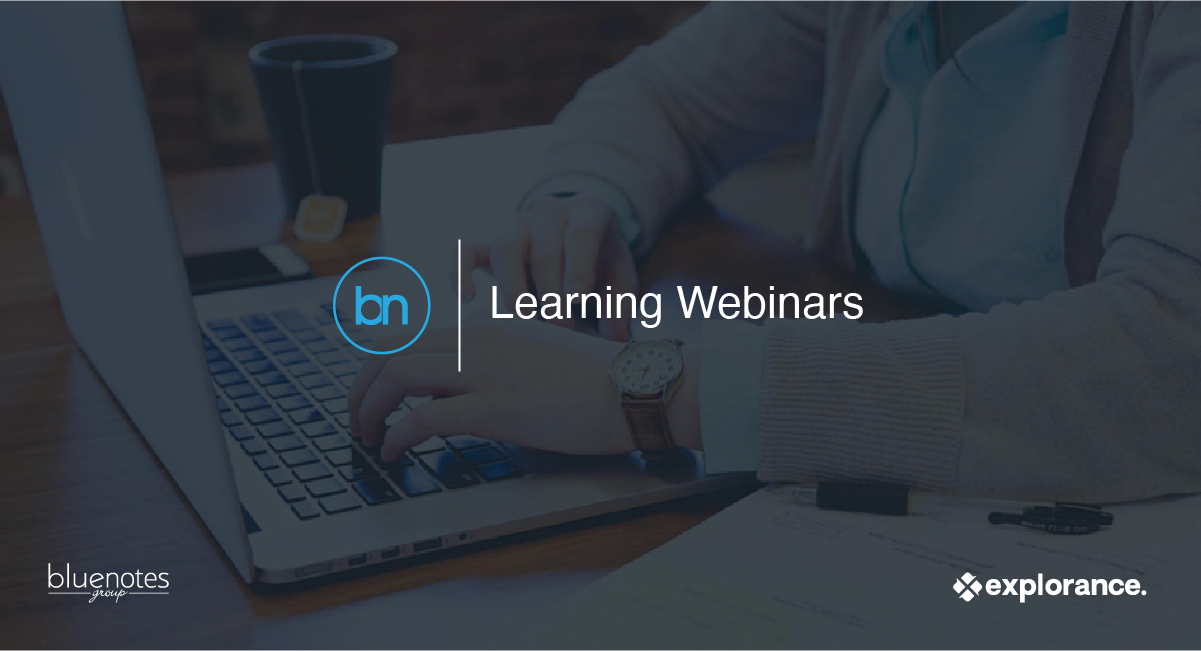Archived
Learning webinars
If you miss a webinar or simply want to review a webinar that happened in the past, this is the place to be!
As part of the Bluenotes community, you have access to both community-led learning webinars by your fellow like-minded colleagues in the Bluenotes community and learning webinars provided by Explorance experts.

Case Study Deep Dive at UNLV - Leveraging Deep Integration to Double Response Rates and Increase Student Engagement
 Wednesday, May 21st 2025, 02:00 PM - 03:00 PM Eastern Timezone
Wednesday, May 21st 2025, 02:00 PM - 03:00 PM Eastern TimezoneAt the University of Nevada, Las Vegas (UNLV), the work continues to improve the course evaluation process for students and faculty to better leverage the data collected to serve our students. UNLV completed a deep integration between Explorance Blue and Canvas in 2023, which greatly increased the accessibility of course evaluations for students.
Due to the deep integration, the response rates for Fall 2023 doubled in a year-over-year comparison. As the institution transitions from a decentralized approach to a more uniform one, we will share how the deep integration increased student participation and changed submission patterns, and how this information is being used to better inform UNLV’s course evaluation policy and procedures and broader campus discourse.
Date: Wednesday, May 21, 2025
Time: 2pm Eastern Time
Presented by: Theresa Farmer and Kanikka Wofford, University of Nevada, Las Vegas

Tips for Thinking Outside the Blue Box: Do Try This at Home!
 Wednesday, January 15th 2025, 02:00 PM - 03:00 PM Eastern Timezone
Wednesday, January 15th 2025, 02:00 PM - 03:00 PM Eastern TimezoneIn the University of North Carolina at Chapel Hill's decentralized evaluation management structure, Heather oversees the evaluation process in the College of Arts and Sciences, the largest unit. Meanwhile, Christina manages evaluations in the School of Pharmacy, known for its complexity. Between the two of them, they use almost the entire feature set within Explorance Blue for their course evaluation processes.
In this webinar, Heather and Christina will be sharing some of the more unique and outside-the-box ways that they use features, including Explorance Data Integrity Gateway (DIG), Question Bank (QBank), relationship demographics, triggers, Question Personalization (QP), reports, virtual questions, Dynamic Report Viewers (DRV), and more. They’ll also spend some time comparing their processes and use cases and how that is dictated by circumstances at UNC Chapel Hill or within their specific schools. While some of what they do requires expert knowledge of Explorance Blue, they still highly encourage you to try this at home!
Date: Wednesday, January 15, 2025
Time: 2pm Eastern Time
Presented by: Heather Thompson, University of North Carolina at Chapel Hill and Christina Pomykal, UNC at Chapel Hill - Eshelman School of Pharmacy

MassBay Community College’s “Special Sauce” - An Innovative Approach to Increasing Response Rates and Engagement
 Wednesday, October 2nd 2024, 02:00 PM - 03:00 PM Eastern Timezone
Wednesday, October 2nd 2024, 02:00 PM - 03:00 PM Eastern TimezoneHow do you get respondents to complete their surveys, even if there is no compulsory factor to do so? MassBay Community College successfully achieves a response rate of 55-70% on course evaluations for each session/ semester throughout the academic year, without a compulsory factor for students to complete their evaluations.
In this webinar, Bridget Madden of MassBay Community College will share the innovative approaches that she implements at the college to boost response rates. Join this session to learn MassBay’s “special sauce” recipe, which includes a comprehensive communication plan, use of multiple channels (analog and digital) and types of information communicated, and thorough calendaring techniques. These combined “ingredients” help boost student and faculty engagement and overall course evaluation response rates.
Date: Wednesday, October 2, 2024
Time: 2pm Eastern Time
Presented by: Bridget Madden, MassBay Community College

Feedback Culture: How to Enhance Your Student Feedback with Pre-course Surveys
 Wednesday, August 28th 2024, 01:00 PM - 02:00 PM Eastern Timezone
Wednesday, August 28th 2024, 01:00 PM - 02:00 PM Eastern TimezoneDiscover how pre-course surveys help faculty connect with students from Day 1. The University of Pittsburgh’s new Pre-course Survey, launched in Spring 2024, enables instructors to gather formative feedback to set expectations and support student success. This Feedback Culture series session will cover:
- Using pre-course surveys to enhance teaching, response rates, and course design.
- The benefits of timely feedback and restricted report access.
- Gaining buy-in from faculty and administration.
- Customizing surveys and reports with Explorance Blue.
Attendees will also gain access to the Faculty Reflection on Student Feedback worksheet.
Date: Wednesday, August 28, 2024
Time: 1pm Eastern Time
Presented by: Lisa Votodian, University of Pittsburgh
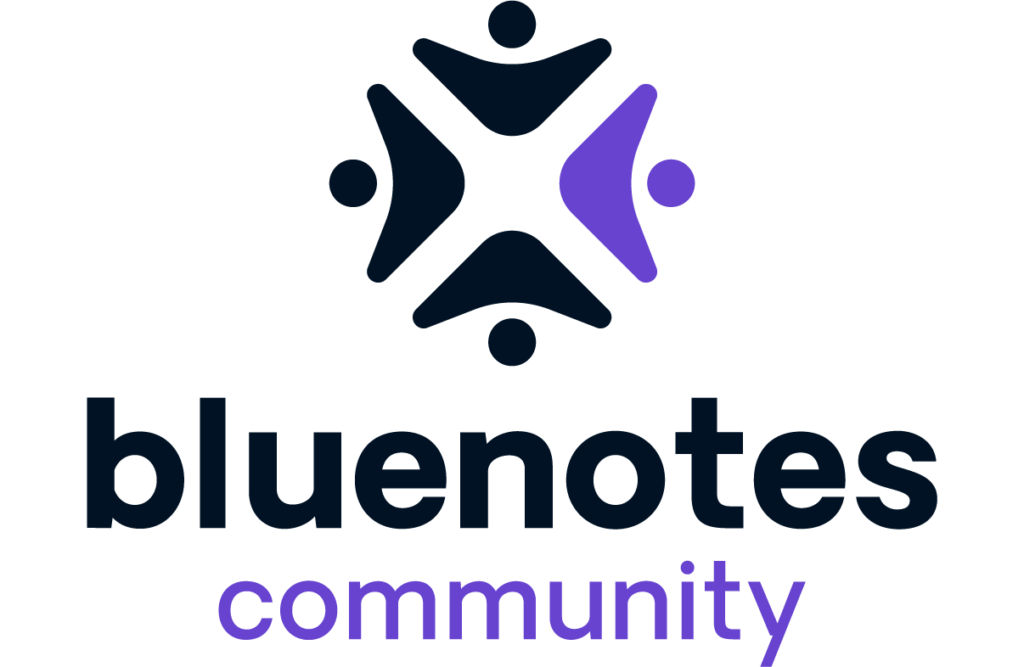
Feedback Culture: Redefining Teaching Effectiveness with Holistic Evaluation Methods
 Thursday, April 25th 2024, 12:00 PM - 01:00 PM Eastern Timezone
Thursday, April 25th 2024, 12:00 PM - 01:00 PM Eastern TimezoneIn this episode, we'll discuss:
- How a combination of self-assessment, peer reviews, and student evaluations of teaching can facilitate diverse perspectives on teaching and learning practices.
- The benefits of a holistic evaluation of teaching for faculty, students, and the institution.
- How the complexities of this comprehensive approach can be simplified and facilitated through frameworks and technology.
Date: Wednesday, April 25, 2024
Time: 12pm Eastern Time
Panelists: Elizabeth Gillis, Dalhousie University, Suzanne Le-May Sheffield, Dalhousie University, Veronica Womack, Northwestern University

Feedback Culture: Mitigating Implicit Bias in Course Evaluations
 Wednesday, March 20th 2024, 12:00 PM - 01:00 PM Eastern Timezone
Wednesday, March 20th 2024, 12:00 PM - 01:00 PM Eastern TimezoneDate: Wednesday, May 20, 2024
Time: 12pm Eastern Time
Panelists: Julie Schell, University of Texas at Austin, Joyce Chen, The Ohio State University, and Veronica Womack, Northwestern University
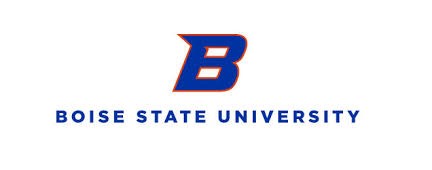
Course Evaluations at Boise State University: A case study in “‘Blue’ Turf Thinking”
 Wednesday, June 7th 2023, 01:00 PM - 02:00 PM Eastern Timezone
Wednesday, June 7th 2023, 01:00 PM - 02:00 PM Eastern TimezoneOver the past few years, Boise State University has been making a concerted effort to evaluate and improve their enterprise course evaluation system. Stakeholders in Academic Affairs and Information Technology looked at internal systems and processes as well as the web-based software tool that delivered the evaluations. This presentation describes Boise State’s transition to Blue from a legacy system (while also transitioning support and administration to central IT) and how it presented opportunities to examine and improve many of their practices, while introducing value adds like universal questions.
In this webinar you will learn about the history of course evaluations at Boise State, what led to transition to Blue, learning about the implementation and how the University has embraced it’s new course evaluation tool.
Date: Wednesday, June 7, 2023
Time: 1pm EST
Presented by: Dr. Leif Nelson and Michael Ellis, Boise State University

Handling Comments of Concern – Practices, Policies, Competency
 Wednesday, May 10th 2023, 04:00 PM - 05:00 PM Eastern Timezone
Wednesday, May 10th 2023, 04:00 PM - 05:00 PM Eastern TimezoneQualitative comments in course evaluations give details to insights contextualizing quantitative data, and more and more institutions are utilizing text-analytics technology such as Blue Text Analytics and BlueML to analyze qualitative comments. One of the capabilities that such text-analytics technology provides is detection of potentially concerning comments - overly negative, offensive, threatening, harassing, biased, and/or indicators of potential misconduct. The key question asked was “Are institutions ready to handle such comments of concern, as they are detected?” In this virtual panel session, panelists will discuss challenges in handling such potentially concerning comments and strategies on how to go about addressing such challenges, such as expanding or clarifying policies and procedures, identifying needed competencies for various stake holders (students, faculty, admin staff, etc), and ensuring that relevant training and communications are available.
Date: Wednesday, May 10, 2023
Time: 4pm Eastern Time
Panelists: Brad Wuetherick, UBC; Lisa Votodian, University of Pittsburgh; Meagan Morrissey, University of Newcastle
Moderator: Pete Baccile, Explorance

Transforming Module Reports into Valuable Quality Assurance Resources
 Wednesday, May 10th 2023, 10:00 AM - 11:00 AM Eastern Timezone
Wednesday, May 10th 2023, 10:00 AM - 11:00 AM Eastern TimezoneThe standard Blue module surveys provide useful results of the student responses for actionable insights. But can we get them to work harder for us? Join the webinar to discover how Birkbeck have added greater context and providing a more rounded picture of the module and its place in the wider degree programme. Explore how module evaluation reports can become valuable quality assurance resources through:
- Using the closing-the-loop functionality to provide feedback back to students
- Enabling module leaders to write their own contemporaneous thoughts to assist with module development
- Enabling module leaders to provide context for their manager and head of department
- Grouping module results into Programme-wide reports
- Incorporating other module and programme data to provide greater context.
Date: Wednesday, May 10, 2023
Time: 10am EST / 3pm BST
Presented by: Garmon ap Garth, Birkbeck University of London

Unlocking the Complexity of Student Evaluations in Medical Schools
 Wednesday, May 10th 2023, 03:00 AM - 04:00 AM Eastern Timezone
Wednesday, May 10th 2023, 03:00 AM - 04:00 AM Eastern TimezoneObtaining student feedback for medical and health sciences is critical and differs from other university programs due to specific scenarios such as different starting dates, block rotations, and multiple instructors. Student feedback gathering in medical and health schools faces a variety of challenges, including data accuracy and preparation, leveraging multiple data sources, monitoring new and dropped students, and new teacher assignments. A centralized system that can handle all surveys and evaluations in one project does not only increases efficiency but may be necessary for student success.
In this Panel discussion, we will go over various response rates techniques such as LMS integration, Reminders, the availability of in-class reminders, and QR codes. In addition, we will demonstrate how to disseminate reports at various levels, such as instructor, program, and/or school. Join us where our respected panelists will share their institution's best practices and techniques for medical school evaluations.
Date: Wednesday, May 10, 2023
Time: 11am Dubai Time
Panelists: Dr. Heba Ismail, Dubai Medical College for Girls, Dr. Adrian Stanley, Mohammed Bin Rashid University of Medicine and Health Sciences, Dr. Maher Alandiyjany, Batterjee Medical College

Data to Insights – Part 2: How Washburn School of Nursing (SON) Transforms Data into Actionable Insights for Purposeful Improvements
 Wednesday, March 8th 2023, 02:00 PM - 03:00 PM Eastern Timezone
Wednesday, March 8th 2023, 02:00 PM - 03:00 PM Eastern TimezoneYou’ve collected your feedback data; now how do you turn it into actionable insights to improve the student learning experience, teaching effectiveness, and operational efficiencies? Join this webinar (part 2 of 2) to learn how Washburn SON makes sense of data from various sources (SIS, LMS, Blue, etc.) in Blue Dashboard and data warehouse in a way for various stakeholders to glean insights and take actions, using data from Blue as a basis for meta-analysis. Washburn SON will also share how the outputs from Blue are integrated to inform accreditation readiness and view improvement trends over time to improve student learning outcomes.
Date: Wednesday, March 8, 2023
Time: 2pm Eastern Time
Presented By: Linda Merillat, Washburn University, School of Nursing

Data to Insights – Part 1: How Washburn School of Nursing (SON) Draws on the Power of Blue to Collect (“Project Set-ups”) and Report on Data (“Report Set-ups”) for Actionable Insights
 Tuesday, February 7th 2023, 02:00 PM - 03:00 PM Eastern Timezone
Tuesday, February 7th 2023, 02:00 PM - 03:00 PM Eastern TimezoneJoin this webinar (part 1 of 2) to learn how Washburn SON draws on the power of Blue with various project set-ups for a wide range of evaluations (such as end-of-term courses, end-of-program, peer-to-peer, agency-preceptor, and faculty workshop evaluations) to provide a more holistic view of student and faculty feedback for actionable insights. Washburn SON will also share how they bring scalability and consistency to their evaluations with the use of Blue Question Bank, to connect specific learning objectives as questions in course evaluations. In addition, you will learn how Washburn SON reports on this data at various levels (including reports for Instructors, Course Coordinators, Program Directors, Associate Deans, and Dean/Director of Assessments).
Date: Wednesday, February 8, 2023
Time: 2pm Eastern Time
Presented By: Linda Merillat, Washburn University, School of Nursing

“A Significant Improvement”: Using Blue to Support Enhancement and Closing the Loop Activities
 Tuesday, November 1st 2022, 08:00 AM - 09:00 AM Eastern Timezone
Tuesday, November 1st 2022, 08:00 AM - 09:00 AM Eastern TimezoneThe University of Worcester has just completed its first 12 months of using Blue following a successful implementation project. This presentation will cover the positive impacts and some challenges of launching Blue across the institution, with a particular focus on how we are using the system to improve communications and feedback to students. We will examine 3 key projects that have been carried out, and identify how Blue is supporting wider goals around enhancement and the student experience.
Date: Tuesday, November 1, 2022
Time: 12:00pm GMT (8:00am ET)
Presenter: University of Worcester

Beyond Dashboards: How We Changed the Fabric of Decision Making
 Wednesday, October 12th 2022, 02:00 PM - 03:00 PM Eastern Timezone
Wednesday, October 12th 2022, 02:00 PM - 03:00 PM Eastern TimezoneYears in the making, Sheridan's integrated suite of intelligence tools has transformed leadership's ability to consistently make faster, better decisions in high stakes situations, bringing IR to the fore in terms of visibility, credibility and strategic import. In the post-pandemic era of change and disruption, this work has tangibly improved our ability to successfully identify and adjust to changing market conditions. Beautifully designed and built on myriad interconnected data sets and custom predictive models, the suite covers all aspects of the institution’s business – administrative and academic, at strategic, tactical and operational levels – allowing users to quickly identify, contextualize and action issues and opportunities. In this presentation we take you from specific visualizations to big picture, reviewing concrete examples of how these tools drive success, and demonstrating how we delivered on our promise to accelerate decision making with more than 'just another dashboard.'
Date: Wednesday, October 12, 2022
Time: 2:00pm Eastern Time
Presenters: Dean Langan & Mark Neumann, Sheridan College

Effective Student Course Evaluations and Question Personalization for Instructors
 Wednesday, September 14th 2022, 02:00 PM - 03:00 PM Eastern Timezone
Wednesday, September 14th 2022, 02:00 PM - 03:00 PM Eastern TimezoneQuestion Personalization allows instructors to add custom questions to their student course evaluations. In this session, we’ll discuss practical tips on how faculty can write effective questions and how the Center for Teaching and Learning at Washington University in St. Louis supports instructors interested in Question Personalization.
Date: Wednesday, September 14, 2022
Time: 2:00pm Eastern Time
Presenters: Rick Moore, Ph.D., Assistant Director of Assessment and Evaluation & Kim Daniels, Registrar Services Specialist, Washington University in St. Louis
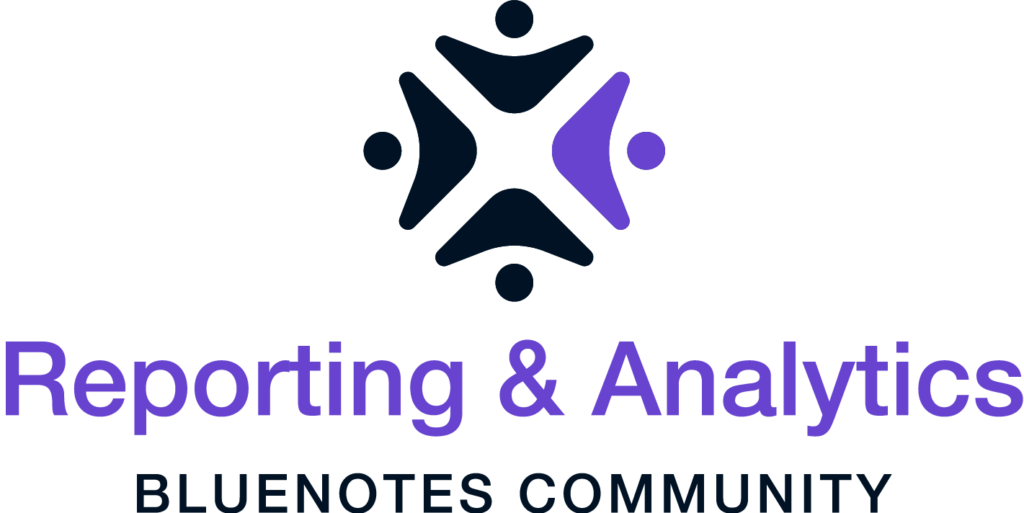
Bluenotes Community March Meetup to Discuss Guidelines for Instructors in Interpreting and Reporting Results
 Wednesday, March 30th 2022, 02:00 PM - 03:00 PM Eastern Timezone
Wednesday, March 30th 2022, 02:00 PM - 03:00 PM Eastern TimezoneOver the past few years, Bluenotes Community members have identified the need for consistent recommendations and guidelines to help instructors interpret evaluation/assessment data to effectively inform teaching and course planning. A group of thought-leading practitioners in the Bluenotes Reporting & Analytics Community have collaborated to build a document of guidelines which centers around a common framework of language associated with reporting of evaluation data - the "Guidelines for Instructors in Interpreting and Reporting Quantitative Feedback" document and the "Guidelines for Instructors in Interpreting and Reporting Qualitative Feedback" document.
We'd like to invite you to meet monthly, starting January 2022 through June 2022, to further develop this document by incorporating feedback from you in Blue-using institutions around the world. The final result will be shared at the Bluenotes GLOBAL 2022 conference in Chicago (July 30-August 3, 2022).
Facilitator and Co-author of the Guidelines: John Jordi, PhD., University of Florida

Enhancing Quality through Management and Reporting of High Volume of Surveys: GMU's Success Story
 Wednesday, March 16th 2022, 07:00 AM - 08:00 AM Eastern Timezone
Wednesday, March 16th 2022, 07:00 AM - 08:00 AM Eastern TimezoneView this webinar recording to learn best practices implemented at the Gulf Medical University on how several surveys and evaluations were administered across different medical and healthcare programs. The webinar also highlights how the results of these evaluations helped in addressing the accreditation standards at both local and international levels and hence fostered the quality assurance system at GMU. The webinar reflects on various features of Blue that were used in:
- Managing high volume of surveys versatile in scope
- Engaging academic teams in enhancing response rates
- Reporting the evaluation results to meet the customized requirements from the stakeholder
- New and enhanced features used for effective reporting of evaluation results
Date: Wednesday, March 16, 2022
Time: 2:00pm KSA / 3:00pm UAE
Presenters: Prof. Sherief Khalifa & Dr. Syeda Asma Fatima, Gulf Medical University

How Blue is Helping in Assessing the Quality of Education in AUC
 Wednesday, February 16th 2022, 07:00 AM - 08:00 AM Eastern Timezone
Wednesday, February 16th 2022, 07:00 AM - 08:00 AM Eastern TimezoneAt its best, high-quality assessments provides actionable insights to inform curriculum and instructional decisions that would facilitate in assessing and improving the Quality of Education. The first step is to vet and design relevant, standards-based surveys and evaluations that can be used to measure satisfaction and effectiveness at the different stages of the student’s learning journey. Quality Assurance and Institutional Research departments works side by side with the Information technology department to build up these well-structured surveys at AUC.
View this webinar recording to learn AUC's best practices on how they have partnered with Explorance to leverage the Blue platform to:
- Enhance the process of designing and publishing different types of surveys.
- Overcome previous challenges with regards to stakeholders’ engagement.
- Design comprehensive reporting, including longitudinal analysis.
- Disseminate timely reports based on the institution’s hierarchy.
Presenter: Nouran Maher, Director, Tech Solutions, The American University in Cairo (AUC)

Survey Emails as an Effective Tool for Improving Response Rates: Sharing Email HTML Codes
 Wednesday, December 1st 2021, 01:00 PM - 02:00 PM Eastern Timezone
Wednesday, December 1st 2021, 01:00 PM - 02:00 PM Eastern TimezoneSurvey invitation and reminder emails can positively impact response rates. Many Bluenotes community members expressed their interest in learning about HTML codes used in survey emails. In this webinar, University of Florida will share various email HTML codes to make survey invitation and reminder emails more effective.
Time: December 1, 1:00pm Eastern Time
Presenter: John Jordi, University of Florida

How to Create an Annual Report in Blue when Course-Evaluation Projects to be Combined Have Different Questions
 Wednesday, December 1st 2021, 07:00 AM - 08:00 AM Eastern Timezone
Wednesday, December 1st 2021, 07:00 AM - 08:00 AM Eastern TimezoneAcademic institutions listen to students, via Student Evaluations of Teaching (also known in various terms such as course evaluations and module evaluations), at the end of a semester. As you do so, stakeholders may want to see an annual report that combines the results of the semesters in a particular academic year. You can use a Blue functionality called “project mapping” to do so. However, what if you have updated or added a few questions in the survey during the second semester? Can we have both versions of the questions and their responses in the annual report? In other words, can we map projects with different question blocks in Blue? Khwarizmi International College (KIC) was able to do so in Blue. In this webinar, KIC will share with you how you can “map” projects with different questions in Blue to produce an annual report that includes results on all questions.
Time: December 1, 4:00pm UAE Gulf Standard Time; 7:00am Eastern Time
Presenter: Anjali Rathod, Institutional Quality, Effectiveness and Assurance, Khwarizmi International College

Strategies to Enhance Course Evaluation Ecosystem: Lessons Learned at NUS
 Wednesday, November 24th 2021, 01:00 PM - 02:00 PM Eastern Timezone
Wednesday, November 24th 2021, 01:00 PM - 02:00 PM Eastern TimezoneStudent feedback on teaching (SFT) gather information and evaluate faculty for personnel decisions (Spooren & Christiaens, 2016; Darwin, 2017; Hornstein, 2017; Linse, 2017). These evaluations primarily capture students’ perception of their experience and satisfaction with teachers (and teaching), rather than teaching effectiveness. In 2017, the National University of Singapore (NUS) transitioned its centralized university-wide course evaluations (known as the SFT system) from an in-house online system to an automated online system using Blue.
In this webinar, we share the planning process, insights gained, and strategies employed in the implementation of a university-wide transition within a condensed timeline. First, we describe the lessons learned in terms of the importance of aligning key objectives of the exercise to the larger purpose, collaborating and engaging with the community, educating and engaging students, and building sustainable processes. Second, we share our experience with reporting and the approaches adopted to use feedback data in the overall analytics strategy of your institution. Finally, we end with an overview of our plans for the future.
Presenters: Kiruthika Ragupathi and Beh Keng Khim, National University of Singapore

Best Practices for Integrating the Student's Voice as an Integral Part of Improving the Learning Experience
 Tuesday, November 16th 2021, 01:00 PM - 02:00 PM Eastern Timezone
Tuesday, November 16th 2021, 01:00 PM - 02:00 PM Eastern TimezoneAt a time when technology has become an integral part of our daily lives, and while students of this millennium are described as tech-savvy, fast-paced individuals who communicate with each other quickly and electronically, most educational institutions still face the challenge of polling students effectively.
This webinar discusses the best ways to elicit students’ opinions in a successful and continuous way, so that the students’ voice represents their impression of the development of the learning journey and their awareness of the outcomes of lessons and curricula. This webinar also focuses on how to achieve positive returns to expectations so that all stakeholders (student, teacher, course coordinator) participate in a sustainable and continuous improvement cycle.
Presenters:
- Prof. Maysaa Al Qurashi, Vice-Rector of Planning, Development and Quality, Saudi Electronic University (SEU)
- Suzan Abu Shakra, Faculty Affairs Manager, King Abdullah University of Science & Technology (KAUST)
- Samer Jaffar, General Manager, MENA and Singapore, Explorance

MBRU’s Experiences with Abruptly Transitioning Medical Programs to Distance Learning at the Onset of COVID-19
 Wednesday, November 3rd 2021, 08:00 AM - 09:00 AM Eastern Timezone
Wednesday, November 3rd 2021, 08:00 AM - 09:00 AM Eastern TimezoneThis presentation shed light on the rapid transition to distance learning of a postgraduate dental medicine and an undergraduate medical program at the Mohammad Bin Rashid University of Medicine and Health Sciences (MBRU). An action research approach constituted the foundation of this collaborative effort that involved investigations, reflections, and improvements of practice, through ongoing cycles of planning, acting, observing, and reflecting. Accordingly, existing platforms were leveraged, learning and teaching activities (including but not limited to assessments) were modified, and distance learning was proactively facilitated for all involved stakeholders. A series of convergent mixed methods research studies were conducted to systemically evaluate the experiences. Quantitative and qualitative data were collected, from learners and instructors, using contextualized, tailor-made surveys assembled through the Blue platform. These internally consistent and externally valid data collection tools were made using input provided by the Bluenotes community members. View this webinar recording to learn more about the results and implications.
Time: November 3, 4:00pm Dubai Time; 8:00am Eastern Timezone
Presenters: Professors Ritu Lakhtakia, Dr. Fatemeh Amir Rad, and Farah Otaki, MBRU

The Paradox of Course Evaluations (and How to Solve It) – Insight from the Stockholm School of Economics
 Tuesday, October 19th 2021, 08:00 AM - 09:00 AM Eastern Timezone
Tuesday, October 19th 2021, 08:00 AM - 09:00 AM Eastern TimezoneStudent feedback surveys are an important tool that should support teachers in the development of pedagogical skills and course delivery. They should motivate teachers to keep improving and help identify the measures that would help students to learn even more effectively. Yet, the feedback often ends up being used primarily by management when deciding on which courses and/or teacher positions should be maintained, and by prospective students when choosing between available courses. Instead of improving quality, course evaluations can sometimes exacerbate quality issues. Low satisfaction numbers discourage students from taking courses, which in turn often decreases the allocated resources and as a consequence the possibility of recovering from negative feedback.
How can we confront this paradox?
Generating, collecting, and reporting course evaluations is often a labor-intensive, time-consuming and largely manual process. The majority of the academic year is often spent on "getting evaluations done" which leaves little margins for designing feedback surveys that go beyond course satisfaction and actually take individual teachers' needs into consideration. Further, due to late reporting and hard-to-understand reports, the collected data is in some cases not even used by the teachers, leaving students with the feeling that their feedback is not valued.
Here is a list of topics that institutions often struggle with, and which this webinar will provide practical advice in tackling:
- Flexibility of course questions in accounting for variations in course structure.
- Timely delivery of results to allow teachers to work with feedback while the memory of the course is still fresh.
- Data analysis to help teachers easily identify what they should focus on.
- Integrated reports and dashboards to help heads of institutions focus on key areas for improvement, instead on performance of individual courses/teachers.
- Creating a feedback loop between the students and the teachers which creates transparency while maintaining privacy.
- Adequate response rates to ensure survey results are representative and valid.
Presenters: Assia Viachka - Academic Controller, Kristin Petersmann, PhD - Data Insights Manager, Stockholm School of Economics
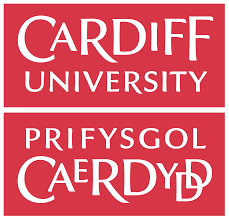
Agile and Responsive Feedback at Cardiff University; Failing Fast and Adapting Quickly
 Wednesday, October 6th 2021, 08:00 AM - 09:00 AM Eastern Timezone
Wednesday, October 6th 2021, 08:00 AM - 09:00 AM Eastern TimezoneAt the end of the session attendees will have an understanding of:
- How older universities can adapt legacy approaches to student voice
- The benefits of an agile approach to student voice for both staff and student engagement
- Approaches to designing a scheme for your own institution
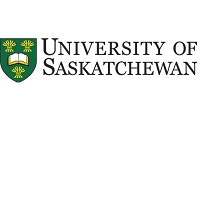
What can Students Contribute to Assessment and Improvement of Teaching Quality? University of Saskatchewan’s Journey from Student Evaluation of Teaching to Student Learning Experience Feedback
 Tuesday, October 5th 2021, 02:00 PM - 03:00 PM Eastern Timezone
Tuesday, October 5th 2021, 02:00 PM - 03:00 PM Eastern TimezoneIncreasingly institutions are reflecting on the purposes of student evaluations of teaching, referred to by many names including student ratings of instruction and course evaluations. The numerous terms used to describe these instruments suggest a multitude of potentially conflicting purposes and/or audiences. In this webinar, the University of Saskatchewan will share its journey of shifting its instrument’s focus from evaluations to student learning experience feedback, along with its thoughtful change management efforts including rethinking of its instrument’s purposes and establishing student learning experience feedback policy and related processes for evidencing and assessing teaching quality.
Time: October 6, 2:00pm Eastern Timezone
Presenter: Nancy Turner, PhD, Director Teaching and Learning Enhancement, University of Saskatchewan
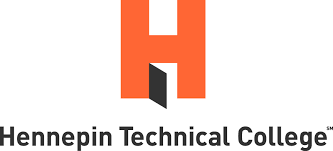
Flip the Script! Using Blue for Course and Program Assessment
 Wednesday, July 14th 2021, 02:00 PM - 03:00 PM Eastern Timezone
Wednesday, July 14th 2021, 02:00 PM - 03:00 PM Eastern TimezoneCan Blue be used in assessment of courses and programs, in addition to students evaluating courses? Yes! Hennepin Technical College has developed an approach to use Blue in order to provide assessments on a course level and a program level, in a more efficient and effective way for faculty completing their end of term assessments.
Assessing the learning outcomes every term provides Hennepin (especially Deans and Program Directors) with insightful data and student demographic analytics – for example, reports comparing outcomes from a course level to an institutional level for benchmark comparisons. Join this webinar to learn how Hennepin Technical College has implemented Blue for assessment of courses and programs, and how everyone from faculty to deans have benefited.
Time: July 14, 2:00pm Eastern Timezone
Presenters: Shannon Thomas M.B.A., Interim Dean of Technology and Institutional Research, Hennepin Technical College
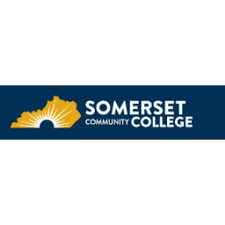
Student Service Experience: How using Student ID Cards enables Fast Feedback on Student Services at Somerset
 Wednesday, June 9th 2021, 02:00 PM - 03:00 PM Eastern Timezone
Wednesday, June 9th 2021, 02:00 PM - 03:00 PM Eastern TimezoneAs students at Somerset Community College are using services such as advisor and tutor services, they are able to provide timely feedback for student services on campus, as well as their experiences with tutors and advisors. By integrating student IDs with barcode scanning functionality, student services and Blue, Somerset initiates the student feedback process from each point-of-contact experience. This automated quick feedback process allows Somerset to address any issues as they arise in a timely manner, rather than waiting until the end of the term. Join Somerset’s community-led webinar to learn how you can expand your feedback process to the student service experiences.
Time: June 9, 2:00pm Eastern Timezone
Presenter: Jacob Held, Somerset Community College

How SUTD Reached a 95%+ Response Rate on their Course and Instructor Evaluations in 6 Months
 Tuesday, May 18th 2021, 04:00 AM - 05:00 AM Eastern Timezone
Tuesday, May 18th 2021, 04:00 AM - 05:00 AM Eastern TimezoneSingapore University of Technology and Design (SUTD) tried to increase the response rate of their Course and Instructor Evaluations over several years with limited success. In this Webinar, SUTD will share how their innovative usage of Blue and University Policies resulted in a 97% response rate in 2020.
Time: May 19, 4:00pm Singapore Timezone
Presenters: Magnus Bengtsson, Lead, Educational Technology, Office of Undergraduate Studies and Raifanah Binte Mohamed Ramli, Senior Associate, Educational Technology, Office of Undergraduate Studies, Singapore University of Technology and Design

Did You Know Blue Could Do That?
 Wednesday, May 5th 2021, 02:00 PM - 03:00 PM Eastern Timezone
Wednesday, May 5th 2021, 02:00 PM - 03:00 PM Eastern TimezoneMany institutions have applied Blue in creative and innovative ways beyond course evaluations for feedback-informed decisions and a higher level of student experience. In this learning webinar, Candace Girard at Tufts University and Donna Davis at James Mason University are joining together to share how they are using Blue. You will learn how Tufts University uses Blue to retrieve data from OASIS, a clinical scheduling tool, to build reports that feed from multiple areas of OASIS into a single Blue-supported data sync in support of meeting the needs of medical and health sciences. You will also learn how James Madison University uses Blue to manage full-semester courses being divided into multiple four-week rotations. Each rotation covers key components for majors in specific disciplines. Enrollees are divided into smaller groups, simultaneously learning and evaluating each component before rotating to the next.
Time: May 5, 2:00pm Eastern Timezone
Presenters: Candace Girard, Tufts University and Donna Davis, James Mason University
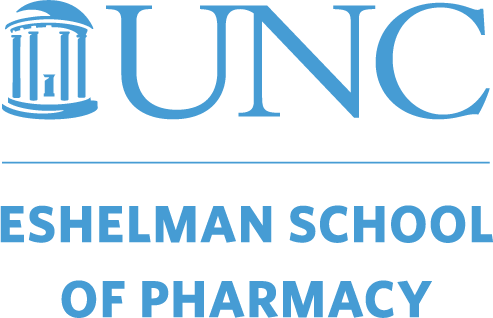
Two Roles, One Class: How to Rate a Secondary Subject Twice in One Form
 Wednesday, April 14th 2021, 02:00 PM - 03:00 PM Eastern Timezone
Wednesday, April 14th 2021, 02:00 PM - 03:00 PM Eastern TimezoneThe Instructor Role and triggers were setup for team-taught courses with multiple instructor roles in the same course. While those tools are powerful, our situation required specific questions for roles and, for an individual serving in multiple roles in the same course, those questions needed to be available “twice” in the questionnaire. Additionally, while one role (Instructor) was evaluated by all students, a different role (Facilitator) needed to be selectable to just the students who had this instructor in small group. In this webinar we will present the unique situation we faced as well as illustrate the solution we came up with to allow an instructor to be evaluated twice in the same form.
Time: April 14, 2:00pm Eastern Timezone
Presenters: Christina Pomykal, Program Manager, UNC-Chapel Hill Eshelman School of Pharmacy; Michael Lee Jones, Professional Services Consultant, Explorance
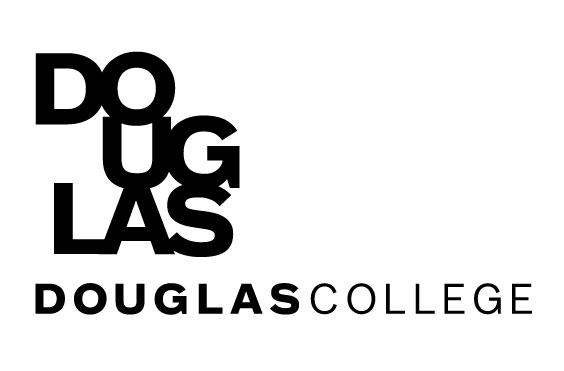
What Can You Do to Increase Course Evaluation Response Rates? Probably A Lot!
 Wednesday, March 10th 2021, 02:00 PM - 03:00 PM Eastern Timezone
Wednesday, March 10th 2021, 02:00 PM - 03:00 PM Eastern TimezoneWhat do you have in your toolbox to improve course evaluation response rates? More than what you think! Join this webinar to learn how Douglas College is using what they have in their toolbox to leverage social media with targeted visuals, reminders, and messaging directed towards students, with the aim of enhancing the visibility and use of their Course Feedback tool. You will also hear the future ideas on how they plan to leverage different strategies to help increase awareness and completion of students’ course feedback in the future.
Time: March 10, 2:00pm Eastern Timezone
Presenter: Suheyl Unver, PhD, Manager, Education & Services Research, Douglas College
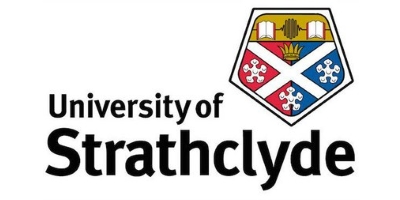
A Dynamic Approach to Implementation of Blue at Strathclyde
 Wednesday, February 10th 2021, 09:00 AM - 10:00 AM Eastern Timezone
Wednesday, February 10th 2021, 09:00 AM - 10:00 AM Eastern TimezoneThe University of Strathclyde will present on the approach taken to implement Explorance Blue through a 2-year project, preceded by University-wide consultation which built on years of previous experience, including a range of approaches and module evaluation pilots across the institution. We will also present the dynamic governance structure which has been adopted for the phased approach to ensure appropriate academic representation and effective collaboration with academic, teaching and professional services colleagues. Blue module evaluation is delivered via integration with Strathclyde’s Moodle-based VLE and adopters of the system at each phase have represented a wide range of disciplines over undergraduate and postgraduate modules, taught both face to face and online. Strathclyde colleagues will report on evaluation to date that is built in to inform subsequent implementation of the system.
Time: February 10, 2:00pm British Timezone; 9:00am Eastern Timezone
Presenters: Brian Green, Caroline Breslin, Jacqueline Jahn, Lorna Robertson | University of Strathclyde
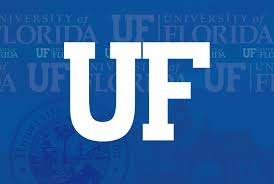
Shared Insights: A Collective Community Approach to Building a Reports Repository
 Tuesday, November 17th 2020, 02:00 PM - 03:00 PM Eastern Timezone
Tuesday, November 17th 2020, 02:00 PM - 03:00 PM Eastern TimezoneA central challenge for any institution in managing the course evaluation process is meeting the needs of a diverse set of stakeholders. Competing factors along with technical challenges can make reporting difficult in various governance environments. This webinar is the first initiated by Bluenotes community members to share report examples and instructions for their creation.
In this webinar, Dr. John Jordi at the University of Florida will share anonymized examples of reports developed to meet the needs of various stakeholders (college, department, faculty, and public) and how they created them. As Bluenotes community institutions share anonymized reports and resources, they can access them via the Explorance Help Center in a new shared repository of anonymized report examples and resources. Please join this learning webinar for innovative problem solving with your like-minded Bluenotes community colleagues.
Time: November 18, 2:00pm Eastern Timezone
Presenter: John Jordi, Ph.D., Center for Teaching Excellence, University of Florida

Just Don't Call It "Blue" and Other Important Lessons From The Ohio State University’s Implementation Journey
 Wednesday, April 8th 2020, 02:00 PM - 03:00 PM Eastern Timezone
Wednesday, April 8th 2020, 02:00 PM - 03:00 PM Eastern Timezone- Apr. 8, 2:00pm – 3:00pm, Eastern time zone (EDT),

Quantifying the Effect of the Learning Experience on…Learning
 Wednesday, February 5th 2020, 02:00 PM - 03:00 PM Eastern Timezone
Wednesday, February 5th 2020, 02:00 PM - 03:00 PM Eastern Timezone- Feb. 5, 2:00pm – 3:00pm, Eastern time zone

In Just a Few Clicks of the Mouse! Automate and Save Valuable Time with Blue
 Wednesday, January 15th 2020, 02:00 PM - 03:00 PM Eastern Timezone
Wednesday, January 15th 2020, 02:00 PM - 03:00 PM Eastern TimezonePresenters:
- Steven Szeszko II, Process Functional Manager, Alamo Colleges District
- Michael Lee Jones, Professional Services Consultant, Explorance

“DIG for Victory” and “Make Do and Mend”
 Wednesday, September 11th 2019, 11:00 AM - 12:00 PM Eastern Timezone
Wednesday, September 11th 2019, 11:00 AM - 12:00 PM Eastern Timezone- Sep. 11, 11:00am – 12:00 noon, Eastern time zone (EDT),
- Sep. 11, 4:00pm - 5:00pm, British time zone (BST)
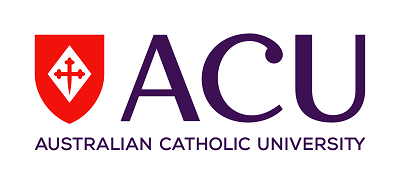
ACU Unitpulse: A journey with Bluepulse
 Tuesday, June 4th 2019, 07:30 PM - 08:30 PM Eastern Timezone
Tuesday, June 4th 2019, 07:30 PM - 08:30 PM Eastern TimezoneThe presentation discusses the process of adoption and university-wide implementation of the Bluepulse (ACU Unitpulse) formative feedback tool at Australian Catholic University (ACU). The presentation highlights some of the challenges in encouraging staff to make use of ACU Unitpulse and make timely improvements to the learning experience of ACU students while a study period is underway.
- June 5, 9:30am – 10:30am, Australian Eastern Daylight Time (AEDT),
- June 4 7:30pm-8:30pm, Eastern time zone
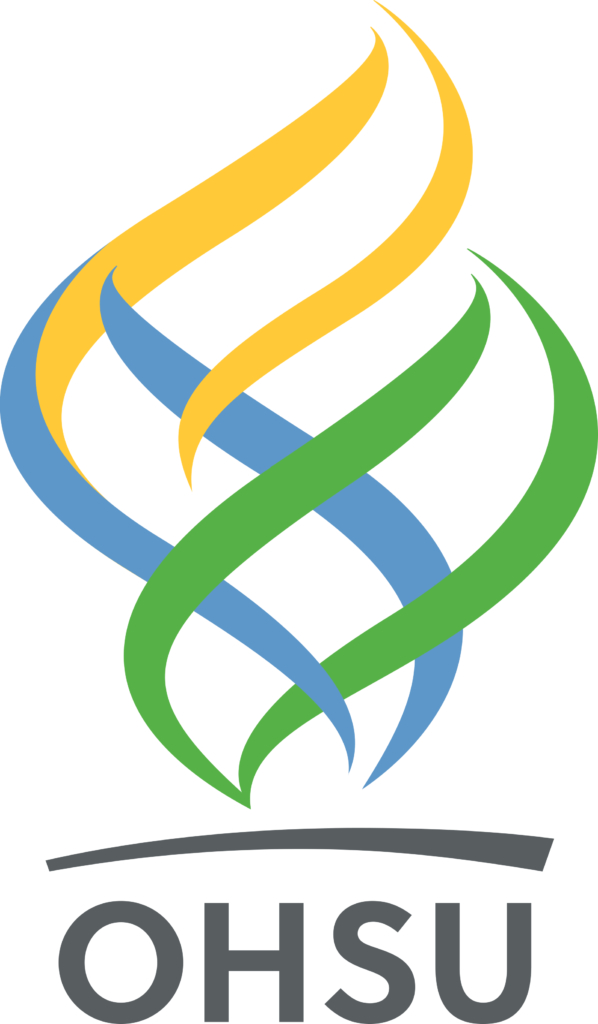
You’ve Got Data! Now What?
 Wednesday, May 8th 2019, 02:00 PM - 03:00 PM Eastern Timezone
Wednesday, May 8th 2019, 02:00 PM - 03:00 PM Eastern TimezoneCongrats! You finished implementing Blue at your institution, and the course evaluation projects are live. Student feedback data is coming in…but what do you do with it? Who do you send it to? How do you store it? How do you make meaningful reports based on the data you collected? This webinar will show how Oregon Health and Science University (OHSU) addressed these question. We’ll do a deep-dive into how the OHSU School of Nursing uses reports from Blue in their course and teaching evaluation audit process, which informs their accreditation reporting and data requests from multiple stakeholders.
Presenter: Larry Williams, Education Technology Specialist, Oregon Health and Science University
Northwestern University’s Experience – Managing a Transition to Blue by Streamlining User Experience with Blue APIs, While Delivering Existing Report-Sharing Experience
 Wednesday, April 10th 2019, 02:00 PM - 03:00 AM Eastern Timezone
Wednesday, April 10th 2019, 02:00 PM - 03:00 AM Eastern TimezoneOne of the key challenges when adopting a new technology or a new system is change management. Northwestern University had a long history of sharing course evaluation results with various stakeholders – students, faculties, and administrations. Thus, keeping the existing reports sharing experience with students, faculties, and administrations was identified as a key success factor for change management, in transitioning from an in-house electronic course evaluation system to the automated process of Blue. In this webinar, we will present how Northwestern partnered with eXplorance to tackle this challenge with a seamless integration between Blue and CAESARS (PeopleSoft-based SIS) using Blue pathway APIs.
Presenters: Jenny J. Chen, Senior Assistant, Northwestern University; Georges Geha, VP, Product Management, Explorance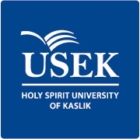
Maintaining a High Response Rate for Course Evaluation While Assuring the Feedback Reliability: The Case of USEK
 Wednesday, March 13th 2019, 10:00 AM - 11:00 AM Eastern Timezone
Wednesday, March 13th 2019, 10:00 AM - 11:00 AM Eastern Timezone- View PDF document: Maintaining a High Response Rate for Course Evaluation Presentation.
- Watch the video presentation.

Engagement: More Than Response Rates!
 Wednesday, January 16th 2019, 02:00 PM - 03:00 PM Eastern Timezone
Wednesday, January 16th 2019, 02:00 PM - 03:00 PM Eastern TimezoneWhat if we shifted the conversation from talking about response rates to talking about engagement? How do we define engagement with respect to course evaluations, and why does it matter? This webinar will explore the University of Toronto’s efforts to do just that. We will provide an overview of our context and explore how we engage stakeholders in a large-scale, decentralized institution. We will showcase our new-and-improved FO e-mail invitations and QP landing page, and share the background research into how these were developed..
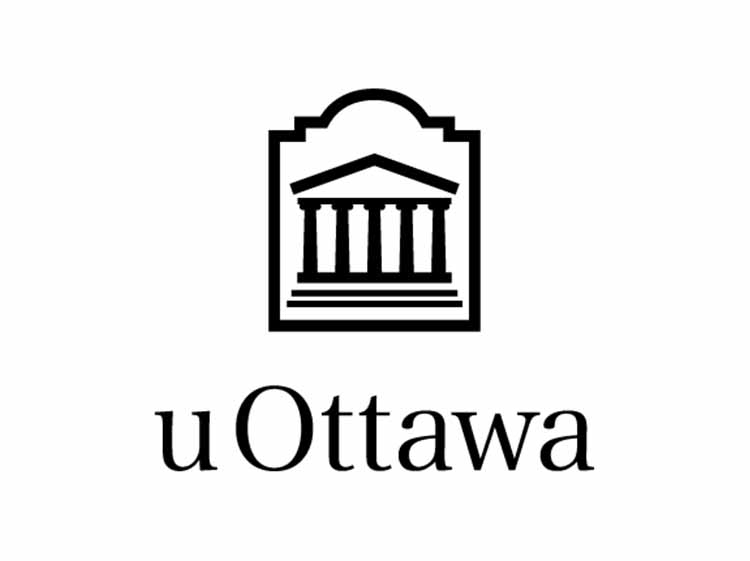
Wrestling with Complex Reporting – the University of Ottawa's Report Building Journey with Blue
 Wednesday, December 5th 2018, 02:00 PM - 03:00 PM Eastern Timezone
Wednesday, December 5th 2018, 02:00 PM - 03:00 PM Eastern Timezone
Developing a ‘Dynamic Feedback’ Environment with Bluepulse
 Tuesday, November 6th 2018, 11:00 AM - 12:00 PM Eastern Timezone
Tuesday, November 6th 2018, 11:00 AM - 12:00 PM Eastern Timezone
To QP or not to QP: Encouraging Module Leader Engagement in Evaluation Surveys
 Tuesday, October 9th 2018, 11:00 AM - 12:00 PM Eastern Timezone
Tuesday, October 9th 2018, 11:00 AM - 12:00 PM Eastern Timezone
Tackling the Challenge of Gaining Institution-wide Buy-in and Adoption of Formative Feedback using Bluepulse
 Wednesday, July 11th 2018, 01:00 PM - 02:00 PM Eastern Timezone
Wednesday, July 11th 2018, 01:00 PM - 02:00 PM Eastern Timezone
CanvasLIVE: Improvement is Personal - An Alternative Approach to Course Evaluation Implementation with Decision Support at Heart
 Tuesday, June 12th 2018, 11:30 AM - 12:30 PM Eastern Timezone
Tuesday, June 12th 2018, 11:30 AM - 12:30 PM Eastern Timezone
A Road Toward the Institution-wide Adoption of Formative Feedback Practices with Bluepulse for Student Success
 Wednesday, May 16th 2018, 01:00 PM - 02:00 PM Eastern Timezone
Wednesday, May 16th 2018, 01:00 PM - 02:00 PM Eastern TimezoneWatch the video presentation.

Yes, It Is Possible to Achieve 85% Response Rates to Course Evaluations for Online Programs
 Wednesday, February 14th 2018, 02:00 PM - 03:00 PM Eastern Timezone
Wednesday, February 14th 2018, 02:00 PM - 03:00 PM Eastern TimezoneWatch the video presentation.
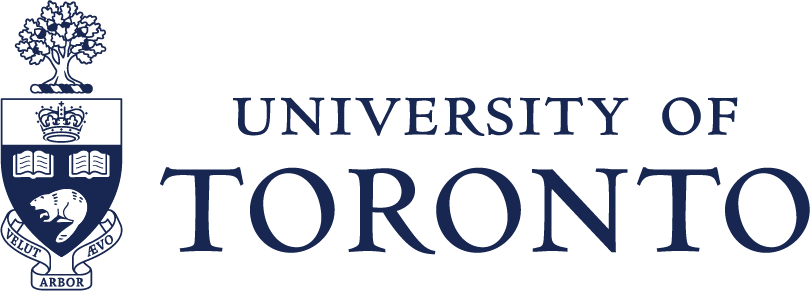
A Tale of Two Faculties: Course Evaluation Implementation at a Large University, a Study of Contrasts and Lessons Learned
 Wednesday, January 10th 2018, 02:00 PM - 03:00 PM Eastern Timezone
Wednesday, January 10th 2018, 02:00 PM - 03:00 PM Eastern TimezonePresenters: Victoria James, Data Coordinator, University of Toronto;Gregory Hum, PhD, Assistant Director, Teaching Assessment, University of Toronto
Watch the video presentation.

Blue Implementation in a Decentralized Environment: The Case of UNC-Chapel Hill
 Wednesday, December 13th 2017, 02:00 PM - 03:00 PM Eastern Timezone
Wednesday, December 13th 2017, 02:00 PM - 03:00 PM Eastern TimezoneWatch the video presentation.

Multiple Datasource Challenges in Course and Teaching Evaluations? University of Auckland’s Experience in Using Data Sync Tool
 Tuesday, November 28th 2017, 08:00 PM - 08:45 PM Eastern Timezone
Tuesday, November 28th 2017, 08:00 PM - 08:45 PM Eastern Timezone.

Unpacking the Complexity of Dynamic Evaluations of Health Science Clinical Rotations: Tufts University’s Experience
 Wednesday, October 11th 2017, 02:00 PM - 03:00 PM Eastern Timezone
Wednesday, October 11th 2017, 02:00 PM - 03:00 PM Eastern Timezone
Blue Surveys at UofL: A Case Study
 Wednesday, September 13th 2017, 01:00 PM - 01:45 PM Eastern Timezone
Wednesday, September 13th 2017, 01:00 PM - 01:45 PM Eastern Timezone
Providing Customization in a Centralized Environment - Lessons Learned
 Wednesday, August 16th 2017, 02:00 PM - 03:00 PM Eastern Timezone
Wednesday, August 16th 2017, 02:00 PM - 03:00 PM Eastern TimezonePresenter: Kent Stoelting, Ed.D. Assistant Director, Testing Center, Indiana University - Purdue University Indianapolis.
Watch the video presentation.

The University of Alabama in Huntsville - Optimizing Course Evaluations for All Stakeholders – Lessons Learned
 Tuesday, March 7th 2017, 02:00 PM - 03:00 PM Eastern Timezone
Tuesday, March 7th 2017, 02:00 PM - 03:00 PM Eastern TimezonePresenter: Ginny Cockerill Assistant Director of Assessment, Office of Institutional Research & Assessment The University of Alabama in Huntsville
Watch the video presentation.

A Galen College Perspective - Institutional Effectiveness and Research - How Explorance Can Help
 Wednesday, February 1st 2017, 02:00 PM - 03:00 PM Eastern Timezone
Wednesday, February 1st 2017, 02:00 PM - 03:00 PM Eastern TimezonePanelist: Carissa L. Shafto, Ph.D. Director of Institutional Effectiveness Galen College
Watch the video presentation.

Expert Module Evaluation Email Notifications that Boost Response Rates
 Wednesday, January 25th 2017, 11:30 AM - 12:30 PM Eastern Timezone
Wednesday, January 25th 2017, 11:30 AM - 12:30 PM Eastern Timezone- How to write better content
- What has or hasn’t worked for VCU
- Email personalization
- HTML/CSS formatting
- Testing
- Appropriate timing for sending emails.
Panelists: Virginia Commonwealth University
Watch the video presentation.

eAccessibility for HigherEd Assessment: Can We Delight Our Users, Regulators, and Budgets?
 Wednesday, September 14th 2016, 02:00 PM - 03:00 PM Eastern Timezone
Wednesday, September 14th 2016, 02:00 PM - 03:00 PM Eastern TimezoneTopics Covered will Include:
- The latest case law and how you can determine what applies to your school.
- Examples of the typical accessibility challenges in surveys and reporting.
- Practical steps you can start implementing at your institution immediately.

Caso de éxito. Aplicación práctica del módulo de evaluación docente en IE Business School e IE University (Spanish Language Presentation)
 Wednesday, June 29th 2016, 11:00 AM - 12:00 PM Eastern Timezone
Wednesday, June 29th 2016, 11:00 AM - 12:00 PM Eastern TimezoneWatch the video presentation.

Making the Most of Module Evaluation for Curriculum Enhancement at LJMU
 Tuesday, June 28th 2016, 01:00 PM - 02:00 PM Eastern Timezone
Tuesday, June 28th 2016, 01:00 PM - 02:00 PM Eastern TimezoneWatch the video presentation.

Guidelines for Ensuring a Smooth Course Evaluation Implementation at a Large University
 Wednesday, March 30th 2016, 01:00 PM - 02:00 PM Eastern Timezone
Wednesday, March 30th 2016, 01:00 PM - 02:00 PM Eastern TimezoneWatch the video presentation.

Assessments in Support of Teaching & Learning: The SFU Experience
 Wednesday, February 24th 2016, 01:00 PM - 02:00 PM Eastern Timezone
Wednesday, February 24th 2016, 01:00 PM - 02:00 PM Eastern TimezoneWatch the video presentation.

Data From Students to Students: You Won’t Believe What Happened Next!
 Wednesday, January 27th 2016, 01:00 PM - 02:00 PM Eastern Timezone
Wednesday, January 27th 2016, 01:00 PM - 02:00 PM Eastern TimezoneWatch the video presentation.

Take Your Course Evaluation Email Notifications to the Next Level
 Wednesday, November 18th 2015, 01:00 PM - 02:00 PM Eastern Timezone
Wednesday, November 18th 2015, 01:00 PM - 02:00 PM Eastern Timezone- How to write better content
- What has or hasn’t worked for VCU
- Email personalization
- HTML/CSS formatting
- Testing
- Appropriate timing for sending emails.
Watch the video presentation. Download the PDF with links to materials : Next level Email Notification.pdf

Linking Course Evaluations to Grade Access: Penn’s Approach to Raising Response Rates
 Wednesday, October 14th 2015, 01:00 PM - 02:00 PM Eastern Timezone
Wednesday, October 14th 2015, 01:00 PM - 02:00 PM Eastern Timezone
Closing the Loop with Bluepulse®: Using Instant Social Feedback to Deliver an Improved Student Experience at RMIT
 Wednesday, June 10th 2015, 01:00 PM - 02:00 PM Eastern Timezone
Wednesday, June 10th 2015, 01:00 PM - 02:00 PM Eastern Timezone- View PDF document: Closing the Loop with Bluepulse.
- View PDF document: Questions from the Webinar - RMIT Responses.
- Watch the Bluepulse video demonstration.

Breaking Down Barriers to Implementing Online Course Evaluations by Cultivating Institution Wide Buy-in
 Thursday, June 4th 2015, 01:00 PM - 02:00 PM Eastern Timezone
Thursday, June 4th 2015, 01:00 PM - 02:00 PM Eastern TimezoneWatch the video presentation.

Increasing Engagement in Online Course Evaluations at Washington State University
 Thursday, April 23rd 2015, 01:00 PM - 02:00 PM Eastern Timezone
Thursday, April 23rd 2015, 01:00 PM - 02:00 PM Eastern TimezoneWatch the video presentation.

Achieving Teaching Excellence and Student Success: Bluepulse At Sheridan College
 Wednesday, March 25th 2015, 01:00 PM - 02:00 PM Eastern Timezone
Wednesday, March 25th 2015, 01:00 PM - 02:00 PM Eastern Timezone